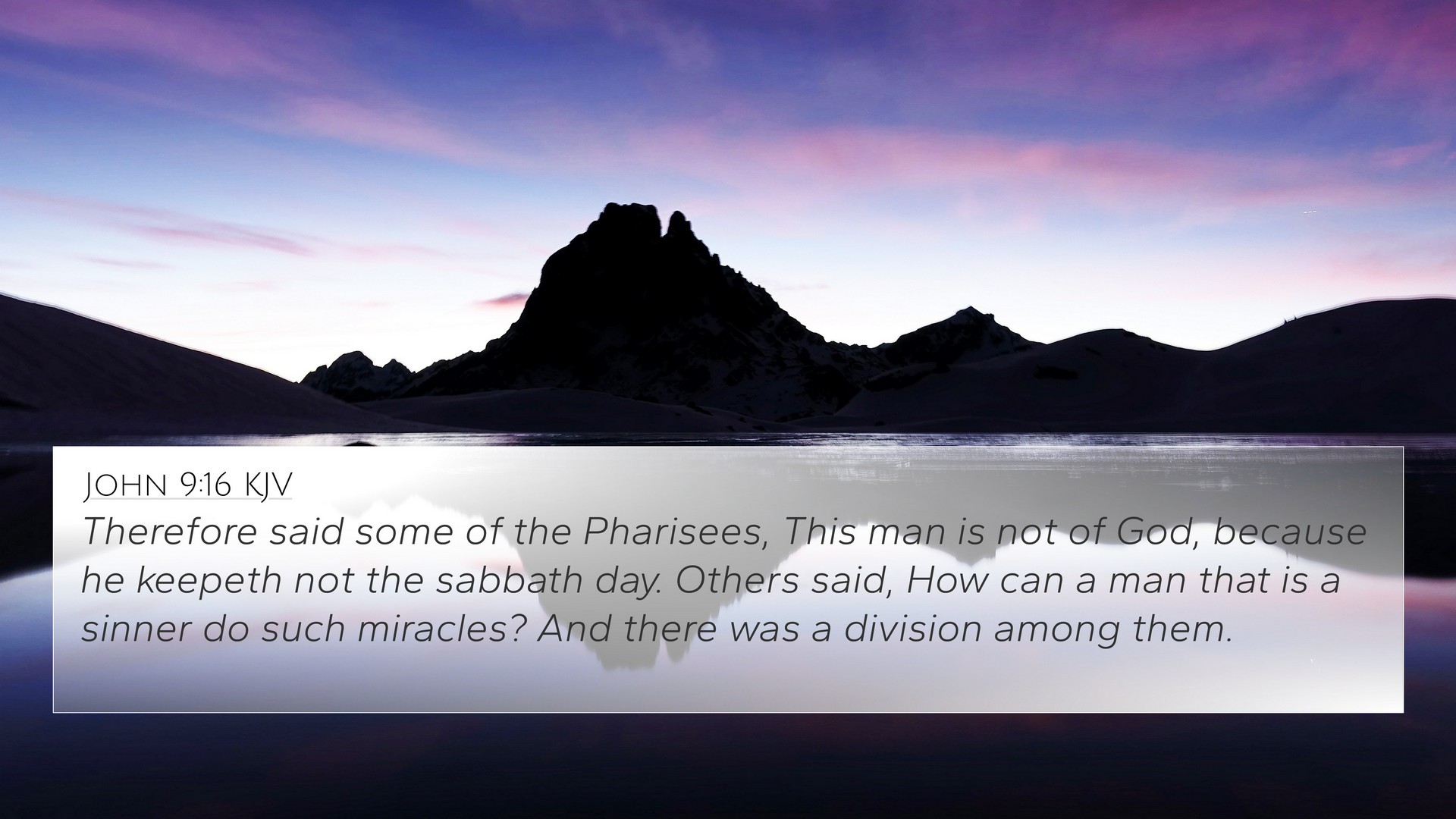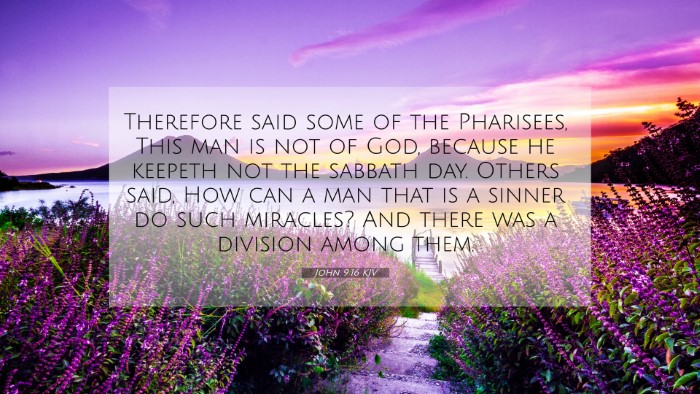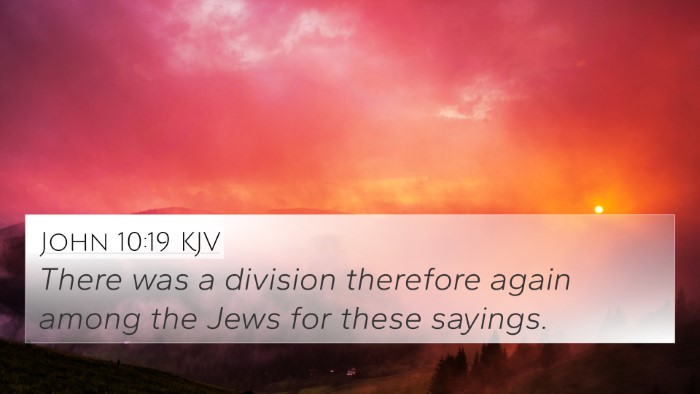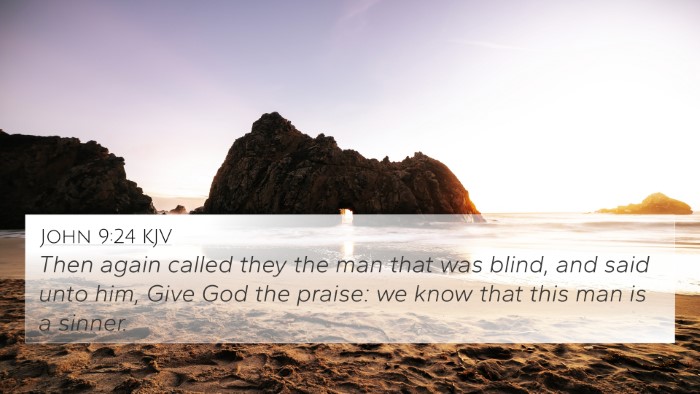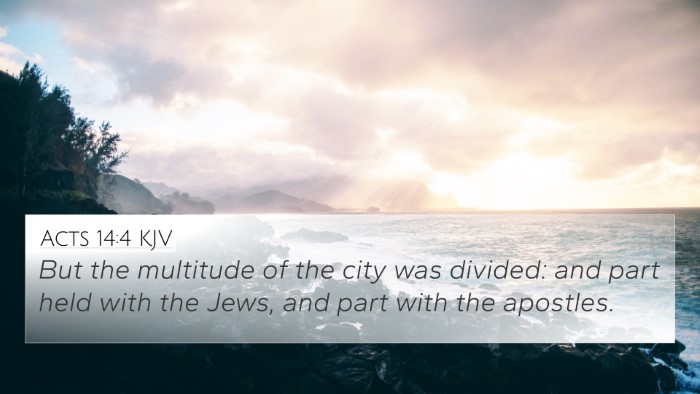Understanding John 9:16
John 9:16 states, "Therefore said some of the Pharisees, This man is not of God, because he keepeth not the sabbath day. Others said, How can a man that is a sinner do such miracles? And there was a division among them." This verse delves into the contrasting perspectives regarding Jesus' miraculous works and the implications of Sabbath observance.
Significance and Meaning
The verse illustrates the polarizing opinions about Jesus, particularly among the religious leaders of the time. Here are some crucial points taken from public domain commentaries:
- Miracles and Division: The miracles performed by Jesus were undeniable, yet they created division. The Pharisees struggled with acknowledging His divine nature because of their strict adherence to the Law.
- Sabbath Observance: Observing the Sabbath was a foundational aspect of Jewish law, and the Pharisees held tightly to this regulation. They labeled Jesus' healing of a blind man on the Sabbath as a violation, thereby accusing Him of being a sinner.
- Interpreting Righteousness: This verse embodies the ongoing debate regarding spiritual righteousness. Some viewed Jesus through a legalistic lens, while others recognized the mercy and power in His acts.
Cross-References for John 9:16
To explore connections between Bible verses and enhance understanding, here are several relevant cross-references:
- Matthew 12:10-12 - Discusses the healing on the Sabbath.
- Luke 14:3-6 - Jesus again heals on the Sabbath and questions the Pharisees’ understanding of the law.
- John 5:16-18 - Similar criticisms of Jesus regarding Sabbath violation.
- Acts 15:10-11 - The early church’s discussion on the burdens of the Law versus grace.
- Romans 3:20 - The role of the law in identifying sin.
- Galatians 5:4 - Warnings against relying on the law for righteousness.
- John 7:12 - The crowd's differing opinions about Jesus, akin to the division highlighted in John 9:16.
Comparative Bible Verse Analysis
This analysis reveals the tension between legalism and the grace that Jesus embodied. The Pharisees' resistance exemplified a broader theme within the New Testament, often debated among early believers. Cross-referencing these themes provides deeper insight into how Jesus’ ministry challenged traditional interpretations of the law.
Thematic Connections
One can observe various explicit themes throughout the New Testament concerning law and grace, righteousness, and divine authority. Here are some thematic Bible verse connections:
- Grace vs. Law: Romans 6:14 highlights that believers are not under the law but under grace.
- Miracles as Evidence of Divine Authority: Mark 16:17-18 showcases signs that follow those who believe.
- Rejection of Jesus by Religious Leaders: Matthew 21:23-27 discusses the challenging of Jesus’ authority.
- Division Among Believers and Non-Believers: Matthew 10:34-36 references the divisive nature of Christ’s message.
Tools for Bible Cross-Referencing
To further explore these connections, consider utilizing:
- Bible Concordance - A helpful tool to find specific words and passages.
- Bible Cross-Reference Guide - Offers structured references for deeper study.
- Bible Chain References - Provides a sequential study of related topics.
- Cross-Reference Bible Study Methods - Techniques for connecting scripture themes.
Conclusion
John 9:16 serves as a pivotal verse that reflects the heart of the conflict between Jesus and the religious authorities. It embodies the larger discourse of grace versus law, challenging readers to reflect on the nature of their faith and understanding of divine authority. By engaging in comparative analysis and thematic cross-referencing, one can uncover profound insights about Jesus’ mission and the early church’s struggles.
